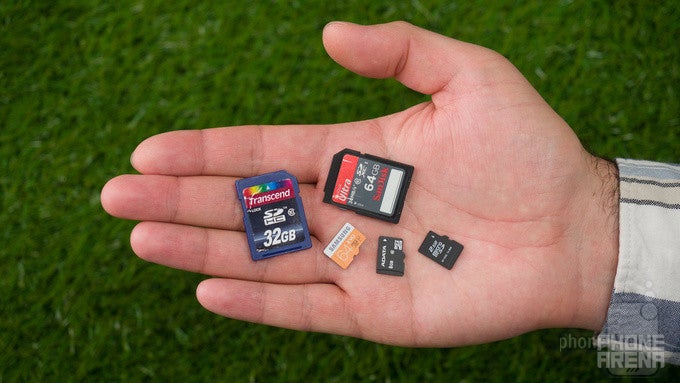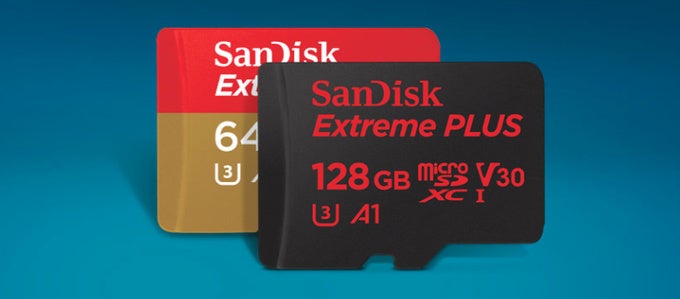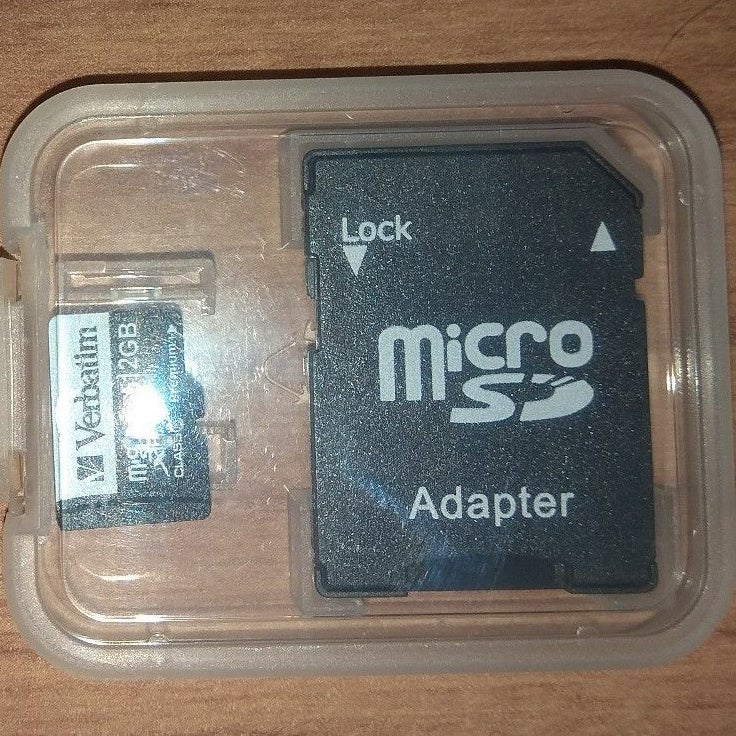It's 2018. Can we leave the microSD card in the past now?
This article may contain personal views and opinion from the author.

Pictured above is the microSD card my girlfriend was using in her phone until recently. The card – a genuine, 64GB Samsung EVO series – served her well for about a couple of years and had never shown symptoms of failing. Yet one day, all her pictures and videos vanished – without warning and without trace. Using the card now results in errors, and my Windows 10 PC is unable to format it. Fortunately, all the data had been backed up, so its disappearance from the card wasn't that big of a deal, but will I ever recommend anyone use a microSD card in their phone? I doubt it.
And what happened got me thinking: perhaps it is time to leave the microSD card in the past. Perhaps if we want not only better smartphones, but a truly better smartphone experience, we need to demand and choose phones with on-board capacity that truly matches our needs instead of clinging onto removable storage for good ol' times' sake.
We don't only need more storage. We need better storage.
Now, before you reach for the pitchforks, let me say that I'm fully aware of a microSD card's advantages. I know how cheap they are. I know that there's a $100 price gap between the 64GB and the 128GB Google Pixel 2, but if the phone had a slot for expandable storage, I could have added the extra 64GB for just another $30. But cheaper isn't necessarily better.
The point I'm trying to make is that we don't only need more storage. We need better, more reliable storage for our ever-evolving phones, and microSD cards aren't a universal solution for a number of reasons.
#1 The reliability of microSD cards is questionable
Theoretically, microSD cards should last for many, many years unless stressed excessively. That's why it is not uncommon for a new microSD card to come with a 5- or 10-year warranty from the manufacturer. Some go as far as to offer lifetime warranty for their removable cards.

Only one of these cards actually works. Shockingly, it's the smallest and oldest of the bunch
But in practice, over the past couple of years, my girlfriend is the third person I know to have experienced loss of data due to a microSD card in their phone failing. One of them had two different cards fail in two different phones. Cards of all varieties have also failed us around the office on multiple occasions. Making matters worse, a microSD card's warranty won't cover data recovery, and even if you let a professional handle the task, there's no guarantee that you'll get anything back.
Of course, our experience has none of the weight a proper scientific study on the reliability of removable storage would, but it's enough for us to say that a microSD card isn't the recommended medium for data you can't afford to lose.
#2 microSD cards are slower than built-in storage
When we talk about storage speeds, we're usually concerned with how fast data is being read, as well as how fast is it being written. A modern high-end smartphone would use UFS storage technology, which is capable of read and write speeds well into the hundreds of megabytes per second – enough for anything from playing Minecraft to capturing high-resolution video at high framerates.

Even the fastest smartphone-compatible cards are slower than built-in storage
Meanwhile, the peak performance of a high-grade microSD card stands at around 90 megabytes per second for both read and write operations, and there's a big "up to" in front of that figure. In reality, read/write speeds can drop way below the advertised rate, depending on the operation.
Can using a microSD card slow down you phone? That depends on a number of factors, including the card's quality and speed ratings, as well as on how the card is set up and used. But slowdowns are indeed possible, and in any case, removable cards can only be seen as an inferior extension to on-board storage, not as an equally capable solution.
#3 microSD cards have limited use
Right now the most practical application of microSD cards is to store your music, photos, and videos on it. Any smartphone would allow you to record media directly onto removable storage, although in some situations – when shooting video in 4K, for example – a higher-grade card would be necessary. But again, the questionable reliability of microSD cards should be considered.
While some apps do let you move their data to a microSD card, access to this data could be hurdled by the card's lower read/write speeds, leading to potential performance issues.
How about Adoptable Storage – the Android feature that lets you use removable storage as if it were native? Well, very few phones actually support it, and many popular ones, including top models by Samsung and LG, do not.
#4 Fake microSD cards are still easy to come by

This fake '512GB' card can be bought on eBay today for about 36 dollars. Please don't do this.
Sadly, eBay is still loaded with these, and so might be your local corner shop. An experienced smartphone user surely can't be fooled, but I wonder how many unassuming shoppers have been suckered in by the temptation to buy a "512GB" card for 36 bucks.
#5 microSD cards are not secure
Have you ever lost a phone? Many of us have. Fortunately, every modern smartphone offers some sort of protection, be it a fingerprint scanner, a face recognition system, or even a basic PIN code, preventing prying eyes from browsing through your stuff. A microSD card, however, is removable, and popping it in a computer or another phone may expose all the data on it.
And do you really, really need a microSD card in 2018?
Indeed, there was a time when a microSD card was more than just nice having in your phone. It was a necessity when on-board storage was limited and expensive – a top-of-the-line Samsung Galaxy S II, for example, had 16 gigs built in, and even back in 2011, these did get filled up pretty quickly. Many phones at the time had only 8GB built in.
Today, most flagship phones offer at least 64GB natively, and that kind of storage would be plentiful for all but the heaviest of users (and hoarders). We don't necessarily need to rely on cheap, potentially unreliable microSD cards for our storage needs. Not anymore.
But are we ready to ditch the microSD card completely? We're surely getting to a point in time where the microSD slot on our phones will be obsolete, much like floppy and CD drives on laptops. But we're not quite there yet. For that to happen, we'll need a three-digit figure to be the norm for base on-board storage, with higher-capacity options available for power users. Either that, or a 5G network revolution that enables super-fast access to affordable cloud storage. In any case, I believe it is only a matter of time until the microSD card slot disappears from most smartphones. It will be a better, brighter future that can't come soon enough.
Follow us on Google News












Things that are NOT allowed:
To help keep our community safe and free from spam, we apply temporary limits to newly created accounts: